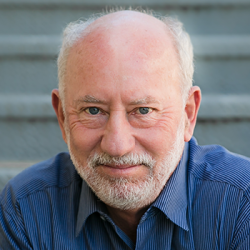
Watch an excerpt of this keynote by Chris Emdin on YouTube.
“Poor pedagogy is equivalent to a knee on the neck.”
That powerful sentence was one of many spoken by Dr. Christopher Emdin in this morning’s opening keynote speech at PBL World 2020. He made the case for PBL as “an anchor to racial justice work” and “a pedagogy for emancipation.” Judging from the comments I saw on the live chat and Twitter, his audience’s reaction was: “BOOM!”
Our annual PBL World event is being held this week, with over 1000 attendees participating via Zoom from 45 states and 25 countries around the world. Our events manager Jamie Roach has done a fantastic job converting it to an online experience for the first time ever, along with a PBLWorks team with too many to name.
This morning, Chris was introduced by PBLWorks CEO Bob Lenz, who pointed out that PBL is a “triple threat” that works well for in-classroom, remote, or blended learning.
Bob shared the story of six students who joined our webinar last month to impressively describe how they had tackled an online project that asked them to envision ways to create a better, sustainable future.
In addition to being a powerful speaker, Chris Emdin has a long list of accomplishments in education. He is a professor of science education and the director of the Center for Health Equity and Urban Science Education, and associate director of the Institute for Urban and Minority Education, at Teachers College, Columbia University.
Chris created the #HipHopEd social media movement and Science Genius B.A.T.T.L.E.S.
He is the author of the award-winning book Urban Science Education for the Hip-Hop Generation and the best-selling For White Folks Who Teach In The Hood and the Rest of Ya’ll Too. He was named the 2015 Multicultural Educator of the Year by the National Association of Multicultural Educators and has been honored as a STEM Access Champion of Change by the White House under President Obama.
“Use PBL to change the world!” was Chris’s closing call to action.
What came before it was a torrent of insight and an urgent message for our times. Below are a few highlights.
Chris began by telling us about his experience as a teacher in the Bronx, where he did PBL before knowing what it was called, “And when I found the PBL community, I felt like I found home.”
Turning to today, when teachers and students are having to navigate remote learning and new technologies, Chris noted, “But this global health pandemic sits in the middle of a larger pandemic…this larger virus of racism. And the thing with that virus is, many of us are asymptomatic. Folks feel like they don’t have any racist bones in their body…But we must face the fact that we have breathed in deeply the bias in the world, and it’s getting manifested in our pedagogy.”
“Our instruction is not allowing students to come alive, to have joy, to have passion… With Project Based Learning… we have the best PPE (Personal Protective Equipment) for educators who are working within the pandemic of institutionally-sanctioned violence.”
He called on teachers to do both outward and inward equity work.
Chris urged them to draw projects from student interests, and use social media to connect with them. Projects should be about “what you deconstruct, what you reimagine, and what you reconstruct… The imagination is a first step, but the activation of the imagination to the creation of a project is the final frontier. That is the work.”
“How have I been complicit in race-based practices that do not allow all young people to come alive?" he encouraged teachers to ask themselves. "How have I been utilizing the curriculum as a baton that I swing at young folks to harm them? How are my state standards that I have been following to a “T” impeding me from being the kind of person that stands in the gap for young folks?”
“PBL educators use their pedagogy as protest. You may not be able to attend marches, but you can use the work you do every day with young people as an opportunity to transform the world.”
Chris went on to talk about “reality pedagogy” that recognizes students’ humanity, an acknowledgment of their experiences.
He suggested thinking in terms of three C’s – co-generative dialogue about what projects students want to do; “co-teaching, to be humble enough to sit down and let young people take the helm” and recognize that they have been “creating” already; and “cosmopolitanism, creating an environment where every young person feels responsible for other young people.”
Near the end he hit us with, “If your project ain’t changing the world, it ain’t doin’ nothin’.”
I could quote him endlessly, but I'll stop for now.
His ideas can’t be ignored.
I strongly encourage you to read his books, share this post, and watch—and re-watch—the video excerpts from his speech, when we make it available for public viewing soon.
To follow the conversation at PBL World 2020, join us on Twitter at @PBLWorks with hashtags #PBLWorld #PBLWorld20.

